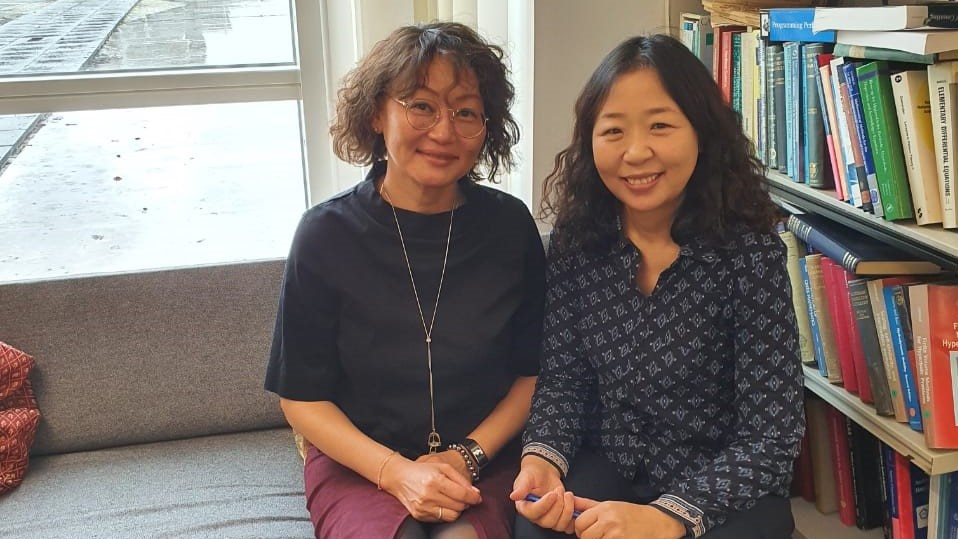As part of the ongoing collaboration between SAMBa (the Centre for Doctoral Training in Statistical Applied Mathematics), the Department of Psychology, and the Institute for Policy Research, two visitors from Mongolia are spending an extended period of time at the University this winter.
Using data to inform policy
Selenge Tsend-Ayush from the National University of Mongolia, and Khurelmaa Dashdorf from UNICEF Mongolia are staying in Bath for three months and one month respectively working with statisticians Julian Faraway, Paula Moraga and Theresa Smith, as well as SAMBa students Teo Deveney and Elizabeth Gray. The team are statistically analysing data sets obtained from government and academic agencies in Mongolia to answer policy-related research questions.
Background to the visit
The visits are funded through a University Research England GCRF award led by Andreas Kyprianou and Susie Douglas from SAMBa, and Julie Barnett from Psychology.
For three years, they have been leading a programme of capacity building and research development in Mongolia. This has supported policy, practice and academic stakeholders in Mongolia to develop conceptual and analytic activities to address the air pollution crisis in Ulaanbaatar (UB), the capital city. UB is one of the most polluted cities in the world with winter particulate matter (PM2.5) often reaching 27 times more than the World Health Organisation's recommended safe level.
Air pollution impacts the health and mortality of the most vulnerable in society, causing heart disease, strokes, lung cancer, pneumonia, asthma, and spontaneous abortion amongst many other things. In 2016 an estimated 3300 people died from diseases attributable to air pollution. UB has a population of around 1.5 million, with Mongolia as a whole closer to three million.
The cost is not only directly to people’s health. According to the World Bank, if air pollution in Ulaanbaatar could be reduced by 50 per cent, economic costs of healthcare could be reduced between $19 million and $38 million.
Project goals
The aim of this current project is to build on the success of the mathematics and policy collaboration, to move into new research areas. Proof of concept ideas will be scoped to address the challenges of air pollution through applied, social and analytical science research. The work that Selenge and Khurelmaa, in collaboration with the Bath team, are carrying out, will provide the foundation to this activity.
A workshop is planned in Bath for the week of 22 June where are variety of stakeholders from Mongolia will spend time working with experts from the University of Bath, including from the Departments of Chemistry, Computer Science, Architecture and Civil Engineering, Social Policy, Economics, and Health.
They will explore new ideas, building research collaboration outside of fundamental statistical analysis and, write these up as case studies and research proposals. These will be taken back to UB to stimulate wider collaborations and action there.

